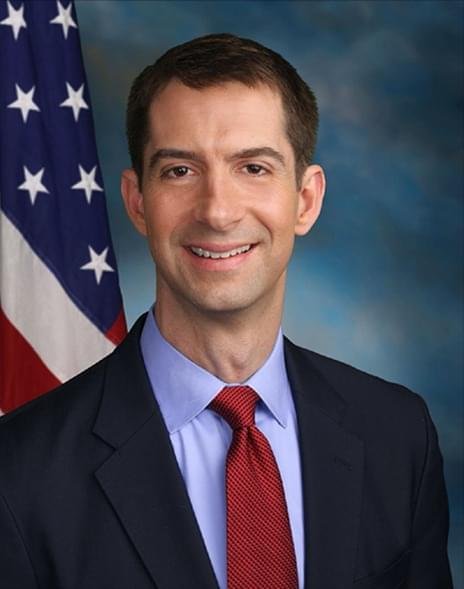Water quality scientists with the Arkansas Water Resources Center, a part of the Arkansas Agricultural Experiment Station, have been examining cyanobacterial harmful algal blooms, or HABs, in the 194-acre body of water since 2018. The lake was created in 1949 to supply the city’s water, but is now used for fishing, kayaking and other recreational uses.
“It’s a small watershed and recreational lake that is heavily influenced by human activity,” said Brian Haggard, director of the Arkansas Water Resources Center and a professor of biological and agricultural engineering. “Now, the watershed is urban, with still some agricultural lands, so it provides a unique opportunity to study a system that has become hypereutrophic.”
Hypereutrophic means the water has high concentrations of nutrients such as phosphorus and nitrogen. While these are necessary for plant growth, when there’s too much, they can spark a “bloom” — an explosive growth of cyanobacteria, which can produce toxins like microcystin.
“Microcystins are the most studied cyanobacterial toxins, and many species of cyanobacteria can produce this toxin under certain conditions,” Haggard said. “There is a lot of nitrogen and phosphorus that can be released from the lake bottom, which might influence when cyanobacteria produced toxins.”
The nutrients which drive cyanobacterial growth can come from the watershed, especially during storm events which transport nutrients to the lake, he explained. However, the “legacy” nutrients, or nutrients stored within the lake bottom, can also drive harmful algal blooms and toxin production by the cyanobacteria.
Haggard said long-term monitoring of Lake Fayetteville offers practical guidance for people who use the lake, especially kayakers and dog owners, to avoid exposure to microcystins, which can make both people and animals sick.
Even though the City of Fayetteville, which owns the lake, put up a sign recognizing the potential for toxic cyanobacterial blooms, Haggard envisions a more comprehensive and data-driven approach.
“What we would like to move towards is something similar to what the forest service uses for fire risk,” Haggard said. “Are there some parameters we can measure rather easily that can help let us know if the chance of elevated toxins is high?”
Haggard said that expensive toxin analyses could be replaced by simple measurements such as water temperature and the fluorescence of phycocyanin, a pigment used for photosynthesis by cyanobacteria. These more cost-effective measurements could be used as a proxy to decide on whether the microcystin toxin concentration is too high in the lake for safe recreational use.
Since the Arkansas Water Resources Center began routine monitoring at the lake, microcystin has been observed in measurable concentrations greater than the reporting limit of 0.3 micrograms per liter throughout the year. In 2019, microcystin concentrations were measured up to 15 micrograms per liter at the lake — nearly double the recommended limit for contact in a recreational water.
Findings over five years
Haggard and his team at the Arkansas Water Resources Center published a study last year in the Journal of the American Society of Agricultural and Biological Engineers examining a subset of the monitoring data taken in summer 2020 at Lake Fayetteville. The study is titled “Microcystin shows thresholds and hierarchical structure with physiochemical properties at Lake Fayetteville, Arkansas, May through September 2020.”
“Lakes with HABs often have a pattern to when toxins are elevated, and Lake Fayetteville tends to have greater total microcystins during late spring, early summer and then again in fall,” Haggard said. “These peaks in total microcystin coincide with natural hydrodynamics of the lake, that is stratification – when the warm and cold layers set up – and turnover – when those layers remix bring nutrients from the bottom waters up to the upper layers.
“It’s not always this simple, but this has been the pattern at Lake Fayetteville. The cyanobacteria seem to produce more toxins during these periods.”
All lakes with deep enough water experience “turnover.” During the spring, the surface water warms when the deep water stays cooler. However, “when the colder water down there is not mixing with the surface any longer, you can lose all the oxygen.”
When the oxygen is gone or limited, a group of bacteria called facultative anaerobes use nitrates to “breathe,” removing nitrogen from the lake bottom waters through a process called denitrification. After the nitrate is gone, these bacteria seek manganese and iron to metabolize for energy.
Once the bacteria move to manganese and iron, they’re dissolving manganese and iron oxides in the sediments, which have phosphorus and ammonium and other things attached to them, Haggard explained. When metabolizing the manganese and iron, the anaerobic bacteria free up phosphorus and ammonium that goes into the lake bottom water and further builds nutrients.
“In the fall, when the lake mixes, this can bring nutrients up into the water,” Haggard said. “This happens when we see the fall peak in cyanobacterial toxins.”
Haggard’s co-authors on the microcystin thresholds study included Erin Grantz and Brad Austin with the Arkansas Water Resources Center; former graduate students Abbie Lasater with the University of Arkansas biological and agricultural engineering department, and Alyssa Ferri with the crop, soil and environmental sciences department; Nicole Wagner with the biology department at Oakland University; and Thad Scott with the biology department and Center for Reservoirs and Aquatic System Research at Baylor University.
Toxin-risk framework























